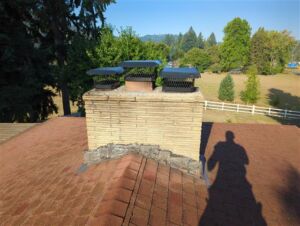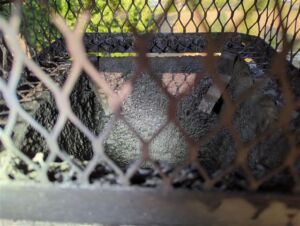The Risks of Chimney Fires and the Need for Chimney Cleaning
Picture yourself nestled up in front of a warm, crackling fire, enjoying the warmth and comfort it offers. The risk of chimney fires, which many homeowners underestimate, lurks behind this picturesque scene. In this article, we’ll examine the dangerous world of chimney fires, the causes of them, and the reasons why routine chimney cleaning is not just suggested—it’s absolutely necessary—for the security of your house and loved ones.
Understanding Chimney Fires

The Dangers of Chimney Fires
Chimney fires pose serious risks, including structural damage, health risks, an increased chance of fire, greater repair expenses, and possible insurance problems. Your chimney, chimney liner, and even nearby walls may sustain structural damage from the high heat of a chimney fire. Particularly for weaker people, the toxic gases and dangerous particles released during a chimney fire can seriously endanger their health. A chimney fire can also easily spread to other areas of your house through the brickwork of the chimney or nearby combustible objects, resulting in extensive damage.
The Need for Chimney Cleaning

The Fire Triangle
A chimney fire is caused by creosote that lines your chimney, oxygen that is sucked in through the flue of the chimney, and heat produced by the fire in your fireplace or stove. The correct combination of these factors can cause a chimney fire to erupt with horrifying speed and severity.
Frequency of Chimney Cleaning
The type of fuel used and how frequently you use your fireplace or stove might affect how often you need to clean your chimney. As a general rule, individuals who use wood-burning fireplaces and stoves frequently should have them cleaned once a year, while occasional users should have them cleaned every two to three years. Even though gas fireplaces produce less creosote, regular maintenance is still necessary to ensure their safe operation. Pellet stoves, producing less creosote, may require cleaning every two to three years, following the manufacturer’s recommendations.
Conclusion
In conclusion, chimney fires are a serious concern that could be disastrous and should never be ignored. The key to reducing these threats and guaranteeing the safety of your property is routine chimney cleaning by qualified professionals. Don’t wait until it’s too late; make a proactive investment in chimney cleaning to save your loved ones, your home, and the special times you spend by the fireplace. The security and comfort it offers are ultimately well worth the time and money spent. Make chimney cleaning a priority, therefore, whether you use your fireplace frequently or only sometimes, to protect your house and loved ones from the flaming effects of neglect.
